The Pacific Institute on Pathogens, Pandemics and Society
The Pacific Institute on Pathogens, Pandemics and Society (PIPPS) is a new interdisciplinary research institute focused on strengthening British Columbia’s capability to prevent, prepare for and respond to major infectious disease events.

About PIPPS
The Pacific Institute on Pathogens, Pandemics and Society (PIPPS) is a new provincial research institute based at Simon Fraser University's (SFU) Burnaby campus. The Institute focuses on understanding the emergence and spread of new pathogens and responding to infectious disease events with pandemic potential that pose potentially severe risks to the health and well-being of populations.
PIPPS is a research and training platform that brings together B.C. scientists, educators, trainees and public health institutions with leading national and international experts. The Institute’s interdisciplinary and population-level focus provides the opportunity to support whole-of-society and planetary health understandings of the wide-ranging determinants and impacts of major infectious disease events, and the multi-sectoral responses needed to enhance and maintain societal resilience.
Research themes include: the evolving nature of pathogens and the potential for future infectious disease threats; estimating risk of future pandemics from emerging pathogens and other infectious disease threats; the health and social inequities arising from pandemic events and responses to them; and effective health and risk communication during major infectious disease events.

Our vision
To convene, generate and share critical knowledge that strengthens British Columbia’s capacities to prevent, prepare for, respond to, recover from and be resilient to major infectious disease events that threaten to severely disrupt health and well-being in the province.
Our mission
- Generate interdisciplinary knowledge for evidence-informed decision making
- Support improved preparedness and response to major infectious disease threats
- Support robust multi-sectoral responses, learning from current/previous pandemics
- Offer rapid response analytical services for policy and practice
Scientific Director

Dr. Ben Ashby
BIO
Dr. Ben Ashby is a mathematical biologist interested in the ecology and evolution of pathogens and their hosts. Dr. Ashby uses mathematical models to study how pathogens spread through populations and how traits such as infectivity and virulence evolve, and in turn how this affects the evolution of host traits such as resistance or tolerance. Dr. Ashby is an Associate Professor in the Mathematics Department at SFU.
PUBLICATIONS
PIPPS research leads

Dr. Ben Ashby
Emerging and evolving pathogens theme lead
Dr. Ben Ashby is a mathematical biologist interested in the ecology and evolution of pathogens and their hosts. Dr. Ashby uses mathematical models to study how pathogens spread through populations and how traits such as infectivity and virulence evolve, and in turn how this affects the evolution of host traits such as resistance or tolerance. Dr. Ashby is an Associate Professor in the Mathematics Department at SFU.
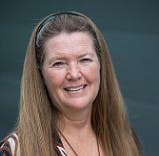
Dr. Cindy Jardine
Health Behaviour and Communications Theme Lead
Dr. Cindy Jardine is a Professor and Tier 1 Canada Research Chair in Health and Community at the University of the Fraser Valley. Her research is in the area of health risk communication, which she interprets to broadly encompass the different perspectives people have on the risks in their lives, how these are shaped through communication and different types of information, and what is needed to promote informed decision-making and action.

Dr. Anne-Marie Nicol
Knowledge translation lead
Dr. Anne-Marie Nicol is an Associate Professor in the Faculty of Health Sciences at SFU. Her research area is knowledge translation strategies with a focus on environmental and public health policy and practice. She has been part of the province's COVID-19 response and has worked previously in the areas of cancer prevention and emerging infectious diseases.

Dr. Julia Smith
Health and social inequities theme lead
Dr. Julia Smith is an Assistant Professor in the Faculty of Health Sciences at SFU, with expertise in intersectional gender-based analysis, the social determinants of health and qualitative research methods.

Dr. Jessica Stockdale
Analytics and data science theme lead
Dr. Jessica Stockdale is an Assistant Professor in the Department of Mathematics at SFU, with expertise in infectious disease modelling, genomic epidemiology and Bayesian statistics. Her work combines data-driven mathematical and statistical approaches to answer questions in disease transmission and public health.
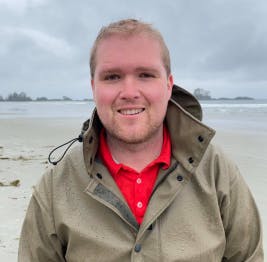
Dr. Kiffer Card
Rapid response hub lead
Dr. Kiffer Card is a behavioural epidemiologist, social ecologist, and health services researcher focused on psychological distress, coping practices, and positive deviance within the context of public health crises. He is an Assistant Professor at SFU in the Faculty of Health Sciences.
PIPPS research team

Dr. Elisha Are
Postdoctoral Researcher, MAGPIE group

Dr. Kaylee Byers
University Research Associate

Ying Liu Bazak
Postdoctoral fellow pandemics and borders project

Felicia Chiappetta
Journalism Intern

Jennifer Fang
Research Fellow, Pandemics & Borders Project
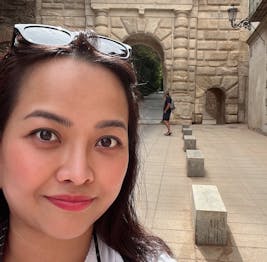
Stella-Luna Ha
Journalism Intern

Inayat Lakhani
MAGPIE Group Manager

Julia Lukacs
Research Assistant, Social Media Project
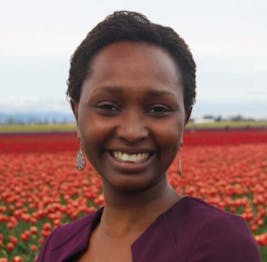
Alice Mũrage
Research Fellow, Health and social inequities theme
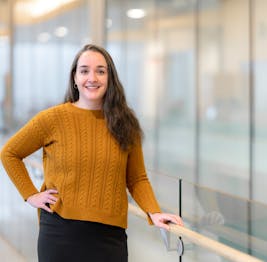
Julianne Piper
Research Fellow and Project Coordinator, Pandemics & Borders Project

Yexuan Song
MSC student, MAGPIE group

Rackeb Tesfaye
Director, Knowledge Mobilization

Haaris Tiwana
Research Fellow, Health and Social Inequities Theme
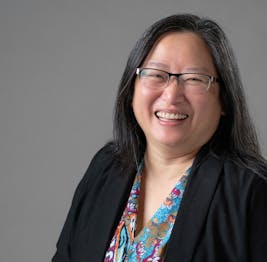
Gladys We
PIPPS Communications

Cody Zhang
Junior Software Developer

Salta Zhumatova
Postdoctoral Fellow, Pandemics and Borders
Three core functions
Science & Research
To establish core facilities, research space and recruit high calibre investigators to conduct and facilitate research
Convening & Capacity Building
To strengthen emerging pathogen and pandemic-related capacity within PIPPS and across B.C.
Engaging & Disseminating
To strengthen understanding of research knowledge and expertise by researchers and non-researchers
PIPPS framework
Three core functions provide a framework for PIPPS’ early development. The first, the Science and Research core function, includes four research themes reflecting the Institute’s initial strategic research priorities. Additional research themes will be added over time based on consultation with partners and stakeholders. The three initial research themes are as follows:
- Health and social inequities: to identify health and social inequities and assist in identifying promising policy approaches to prevent or reduce the risk of social and economic inequities in future pandemics.
Lead: Dr. Julia Smith, SFU - Emerging and evolving pathogens: to better understand the evolving nature of pathogens and the potential for future infectious disease threats in B.C.
Lead: Dr. Ben Ashby, SFU - Analytics and data science: to identify emerging pathogens and infectious disease threats and estimate the speed of a new potential pandemic.
Lead: Dr. Jessica Stockdale, SFU
The Convening and Capacity Building core function focuses on building, strengthening and supporting pathogen and pandemic-related research capacity within PIPPS and across British Columbia. Major strategies include postgraduate specialized training, fellowships and internships, multi-institution professional opportunities, and establishment of Research Affiliates and Research Collaborators.
The Engaging and Disseminating core function aims to develop non-researcher understanding of pathogen and pandemic-related science and research to strengthen population resiliency in future infectious disease events. Major strategies include optimizing the translation of research findings to policy and practice, encouraging the application of research findings across the public domain, and supporting science-based knowledge translation and public education activities.
Join us
We have upcoming openings for lead researchers, postdoctoral fellows and research assistants. We will also be establishing an affiliate researchers program which will include our colleagues in B.C.'s Health Authorities and related organizations.
Future opportunities to join our team will be posted here.
Affiliated projects
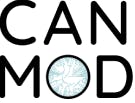
Canadian Network for Modelling Infectious Diseases
Funding: Natural Sciences and Engineering Research Council of Canada (NSERC) Emerging Infectious Disease Modelling program
PIPPS Researcher: Caroline Colijn
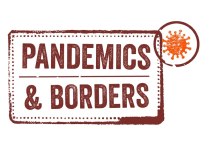
Pandemics and Borders Project
Funding: New Frontiers in Research Fund (NFRF), Canadian Institutes of Health Research (CIHR), others
PIPPS Researcher: Kelley Lee
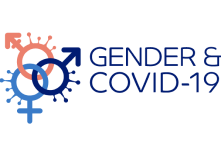
Gender and COVID-19 Project
Funding: CIHR, Gates Foundation, others
PIPPS Researcher: Julia Smith

Evolving Pathogens and Host-Pathogen Coevolution
Funding: Natural Environment Research Council (UK)
PIPPS Researcher: Ben Ashby
Funding and grants
PIPPS researchers have received prestigious grants to support their work on pandemics and pathogens.
- Canadian Network for Modelling Infectious Diseases (CANMOD). Caroline Colijn (Principal Investigator), 2021-2024, NSERC, C2,500,000.
- Governing the global antimicrobial commons in a sustainable, acceptable, fair and effective (SAFE) manner. Kelley Lee (Co-Applicant with Nominated Principal Investigator Steven Hoffman et al.), 2022-2027, SSHRCC Partnership Grant, C$2,499,993.
- Mathematics for Infection, Evolution and Public Health. Caroline Colijn, Canada 150 Research Chair, 2018-2025, C2,000,000.
- Developing social connection guidelines to help Canadians build happier, healthier, and more inclusive communities in the late pandemic period. Kiffer Card (with collaborators from the PHAC, non-profit sector, and other Canadian researchers), 2022-2026, CIHR, C$761,000.
- Advancing methods and analyses to support evidence-informed decision-making on the coordinated use of travel-related measures during public health emergencies of international concern: Lessons from the COVID-19 pandemic. Kelley Lee (with Principal Applicants William Hsiao, Caroline Colijn; Co-Applicants Julia Smith, Eric Werker, Beate Sander, Zohaib Anwar), 2021-2023, CIHR Project Grant, C$646,424.
- Understanding, recovering from, and mitigating inequities associated with the use of travel measures during the COVID-19 pandemic: Lessons for post-pandemic recovery and future preparedness from Canada-US border management. Kelley Lee (with Laurie Trautman, Julia Smith, Anne-Marie Nicol, Julianne Piper, Jennifer Fang, Alice Murage, Salta Zhumatova), New Frontiers in Research Fund Special Call, C$500,000.
- Towards transformative pandemic response, recovery, and preparedness: An intersectional gender analysis of the secondary effects of COVID-19 on women and healthcare providers. Julia Smith, Michael Smith Health Research BC Scholar Award, C$450,000.
- Addressing the wider health impacts of COVID-19. Standing together: Strength, resilience and Indigenous leadership as the pathway to pandemic responses. Kelley Lee (Co-Applicant with Principal Investigator Shannon McDonald; with Julianne Piper and Jennifer Fang), 2022-2024, CIHR Operating Grant, C$341,752.
- Microbial evolution along the parasitism-mutualism continuum. Ben Ashby, 2022-2027, NSERC Discovery Grant, C$202,500.
- Advancing equity-based pandemic preparedness through intersectional analysis. Julia Smith (with Co-Investigator Alice Mũrage), 2022-2023, CIHR Catalyst Grant: Transforming Public Health, C$94,000.
- Building social media communications capacity for public health emergency response and preparedness in British Columbia. Kaylee Byers (with Co-Investigator Anne-Marie Nicol), 2022-2023, CIHR Planning and Dissemination Grants - Institute Community Support, C$24,662.
- Standing together: Strength, resilience, and Indigenous leadership as the pathway to pandemic responses. Kelley Lee (Co-applicant with Principal Investigator Shannon McDonald), 2021-2022, World Health Organization, US$20,185.
- The COVID-19 pandemic and commercial determinants of health: A Briefing Paper. Kelley Lee, 2021-2022, World Health Organization, US$20,185.
- Catalyzing global collective action on antimicrobial resistance. Kelley Lee (Co-Applicant with Nominated Principal Investigator Steven Hoffman et al.), 2021-2022, SSHRCC Partnership Development Grant, C$20,000.
- Resolving the primary and secondary effects of post-COVID syndrome to identify coping and management strategies for British Columbians. Kiffer Card (with Co-Investigators Anne-Marie Nicol, Kaylee Byers, Julia Smith), PHSA Post-COVID Interdisciplinary Clinical Care Network, C$15,000.
- Cultivating capacity for social media communications by government and allied government agencies in British Columbia. Anne-Marie Nicol (with Co-Investigator Kaylee Byers), 2022-2023, SFU/SSHRC Small Explore Grant, C$6,931.96.
- Navigating Long COVID: Co-creating research priorities to understand and address the information needs of unpaid care providers in British Columbia. Kaylee Byers, with Family Caregivers of BC and PC-ICCN, 2022-2023, MSHR BC C2 Convening and Collaborating Grant. C$15,000.
Resources
Selected Recent Publications
Selinger, Alexandra; Tiwana, Haaris; Yildirim, Sevde; Smith, Julia
Optimizing Virtual Health to Empower Caregivers: Setting a Research Agenda
PIPPS Environmental Scan
Jamieson, Kayli; Smith, Julia; Byers, Kaylee; Tesfaye, Rackeb
PIPPS Study Report
Tiwana, Muhammad Haaris; Smith, Julia
PIPPS Research Brief
Tiwana, Muhammad Haaris; Smith, Julia
PIPPS Research Brief
Lukacs, Julia; Nicol, Anne-Marie; and Byers, Kaylee
PIPPS Workshop Report
Tiwana, Muhammad Haaris; Mũrage, Alice; Smith, Julia
Applying intersectional approaches to pandemic preparedness and response
PIPPS Research Brief
Aran, Niloufar; Moallef, Soroush; Byers, Kaylee; Nicol, Anne-Marie; and Card, Kiffer G.
Key recommendations for government’s use of social media
PIPPS Research Note
Palmer-Fluevog, Alexis; and Card, Kiffer G.
PIPPS Research Brief
Palmer-Fluevog, Alexis; Allison, Sandra; Hoverman, Adam; Gallant, Shelley; Robson, Beccy; and Card, Kiffer G.
PIPPS Research Brief
Byers, Kaylee; and Bubela, Tania
Return-to-work communications: Results from a 2022 SAfER BC study
SAfER BC Report, a project of Genome BC
Purewal, Simran; Jamieson, Kayli; Byers, Kaylee; and Smith, Julia
Ensuring value for those in need of Long COVID-19 Care
PIPPS Workshop Recap
Purewal, Simran; Smith, Julia; and Nicol, Anne-Marie
Working with Community Knowledge Brokers to Reach Priority Populations During Crisis
PIPPS Research Brief
Purewal, Simran; Zolfaghari, Neda
Long COVID information-seeking experiences: Considerations to improve access to information and care
PIPPS Research Brief
Lee, Kelley
The Global Governance of Emerging Zoonotic Diseases: Challenges and Proposed Reforms
Council on Foreign Relations
Lee, Kelley; Piper, Julianne and Fang, Jennifer
Using Risk Analysis to Shape Border Management: A Review of Approaches during the COVID-19 Pandemic
Buckingham, L., Bruns, E., Ashby, B.
The evolution of age-specific resistance to infectious disease
Proceedings of the Royal Society Biological Sciences
Mũrage, Alice
Monkeypox vaccination for sex workers: Evidence to inform equity-based responses
PIPPS Research Brief
Sobkowiak, B., Kamelian, K., Zlosnik, J.E.A., Tyson, J., Goncalves da Silva, A., Hoang, L.M.N., Prystajecky, N., Colijn, C.
Cov2clusters: Genomic clustering of SARS-CoV-2 sequences
medRxiv 2022.03.10.22272213
Stockdale, J.E., Susvitasari, K., Tupper, P., Sobkowiak, B., Mulberry, N., Goncalves da Silva, A, Watt, A.E., Sherry, N., Minko, C., Howden, B.P., Lane, C.R., Colijn, C.
Genomic epidemiology offers high resolution estimates of serial intervals for COVID-19
medRxiv 2022.02.23.22271355
Tupper, P., Pai, S., COVID Schools Canada, Colijn, C.
medRxiv 2021.12.07.21267381
Lee, K.
The world needs a better strategy for COVID travel restrictions
Foreign Affairs. 9th December 2021
Iyaniwura, S.A., Falcão, R.C., Ringa, N., Adu, P.A., Spencer, M., Taylor, M., Colijn, C., Coombs, D., Janjua, N.Z., Irvine, M.A., Otterstatter, M.
medRxiv 2021.10.19.21265177
Are, E.B., Stockdale, J.E., Tupper, P., & Colijn, C.
Covid-19 endgame: From pandemic to endemic?
medRxiv 2021.12.18.21268002
Lee, K.
Rethinking border management and global health security after the pandemic
Think Global Health. 1 September 2021
Lee, K.
Restarting international travel will be messy but enabled by improved risk-based analyses
Lancet Regional Commentary — Western Pacific. 20 July 2021
Liu, P., Song, Y., Colijn, C., MacPherson, A.
The impact of sampling bias on viral phylogeographic reconstruction
medRxiv 2022.05.12.22275024
Piper, J., Gomis, B., Lee, K. (2022)
Frontiers in Political Science, 19 April 2022
News
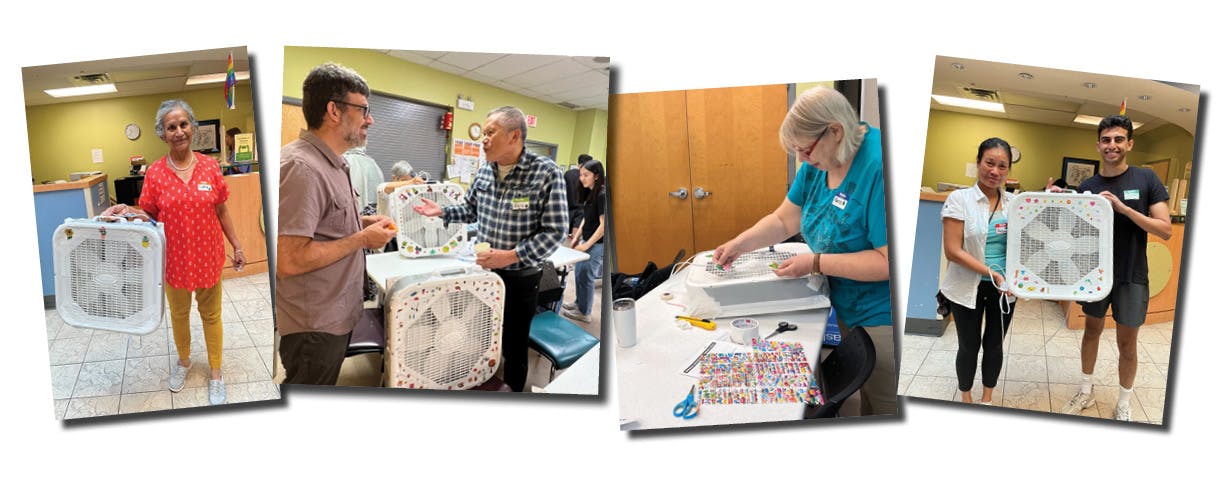
Our Air Cleaners project team has been offering free DIY Air Cleaner workshops at community centres from Vancouver through to Hope this summer.
Resources available:
1. Handout on how to build it for yourself
2. Short Instagram reel to show how easy it is. (Also on youtube)
3. Longer step-by-step video on youtube
We are grateful for the financial support of BC Lung, the City of Vancouver, Vancity, the Canada Summer Jobs program, and SFU's Community Engagement Initiative.
Congratulations to Dr. Kaylee Byers and Dr. Kiffer Card! They have just received the Convening and Collaborating Award from Michael Smith Health Research BC.
Congratulations to Dr. Julia Smith, PIPPS' health and social inequities theme lead, for two prestigious recognitions this month!
- Michael Smith Health Research BC has named her as a 2022 Scholar, for a project named "Towards transformative pandemic response, recovery, and preparedness: An intersectional gender analysis of the secondary effects of COVID-19 on women and healthcare providers." Funding is $90,000 per year for five years.
- She has just received a CIHR Catalyst Grant for $94,805 for a research project on "Advancing Equity-Based Pandemic Preparedness Through Intersectional Analysis."
Follow Dr. Smith on Twitter: @juliaheather
Congratulations to Alice Mũrage and Julianne Piper! Both Alice and Julianne have received major doctoral entrance scholarships as they begin their PhD programs in Fall 2022.
Meet Dr. Kaylee Byers! Dr. Byers is one of PIPPS' research associates. She will be working on research around health communications in BC. Dr. Byers has recently received two grants — one for $24,662 from CIHR for "Building Social Media Communications Capacity for Public Health Emergency Response and Preparedness in British Columbia" and another for $15,000 from the Post-Covid Interdisciplinary Care Network, for a study entitled "Resolving the primary and secondary effects of Post-COVID Syndrome to identify coping and management strategies for British Columbians." See full profile or listen to her Nice Genes! podcast.
Stay updated
Please join the pipps-info email list if you would like to receive an update when there are announcements from PIPPS. To subscribe, send an email to maillist@sfu.ca with the text "subscribe pipps-info" in the subject line. (Clicking on that link should set up the email for you.)
You will get a confirmation email from the maillist system, and you only need to reply to that email to be added to the list.
To unsubscribe, send an email to maillist@sfu.ca with the text "unsubscribe pipps-info" in the subject line.


